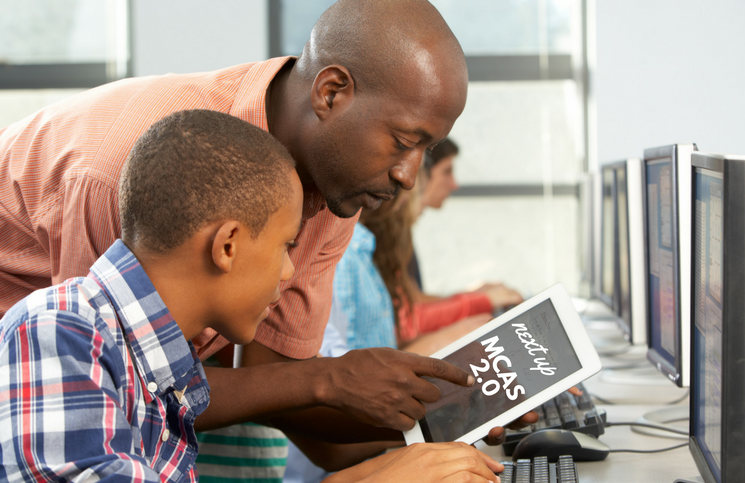by Joan Reissman, Blended Learning Specialist
The new MCAS 2.0 tests for 10th grade will not be in place until the spring of 2019, but preview tests will be administered this spring. All Massachusetts high schools will be randomly assigned either ELA or math and they are expected to have at least 25% of their students participate. The preview testing window for 10th grade will be between the regular English and math MCAS tests, from April 23 through May 11.
In order to make this testing a meaningful experience, students should be preparing now. Taking the preview seriously will help teachers and students prepare for the real exam in 2019. JFY’s online program can help students prepare for the pilot MCAS 2.0.
First, some basics. Although participation in the pilot test is required, the pilot will not replace participation in the regular 10th grade MCAS tests. Since the pilot does not count toward graduation, schools will not have to administer the test to all students at the same time. The pilot will be short—ELA will have 22 questions instead of 40, and math will have 21 instead of 42. There is very little preview material available, but some sample questions are at http://mcas.pearsonsupport.com/student/.
What are the differences? The questions will be harder and the test will be online (a good opportunity for schools to gauge their tech capacity). You might think that reading on a screen is no big deal for today’s students. However, studies have questioned the retention level of computer reading versus the printed page. Some say the difference in retention may reflect young people’s habits of mind– a more relaxed attitude toward comprehension and absorbing details — rather than underlying ability. Students may be glued to a screen all day, but what they are reading is not academic content that requires comprehension or retention.
Snapchat’s evanescent lifespan is a mirror of the young online mind, deleting each entry, saving nothing. An online program like JFY’s can help students develop habits of retention through practicing content absorption online, in the same format as the test. Reading and answering questions online helps students learn to absorb online material with greater comprehension and retention.
JFY’s online learning program enables the teacher to monitor student progress. Frequent data analysis helps identify specific weaknesses in struggling students. Teachers can encourage students to be active readers by taking stock of main ideas at the end of every paragraph. They can also help students decode unfamiliar words and develop new vocabulary by using context skills in assigned online passages.
Practicing math online helps students develop higher order thinking skills, a key component of the new MCAS. JFY’s online math program guides student comprehension step by step through prompts and hints. This pedagogical method is uniquely suited to building deeper understanding of mathematical concepts and developing higher order thinking skills.
Teachers can help students help themselves through online learning. Practicing online gives students immediate feedback and enables teachers to focus directly on individual needs. With online learning, students improve skills, increase performance and become digital citizens.
The new MCAS 2.0 will be the standard for 10th grade Competency Determination in English Language Arts and math beginning with the class of 2021. New science tests will debut in spring 2020. The current MCAS remains in effect for all classes through the class of 2020.
Neither students nor teachers should feel intimidated by computerized testing. A modest amount of advance preparation will turn the practice test into an empowering experience for all parties.





